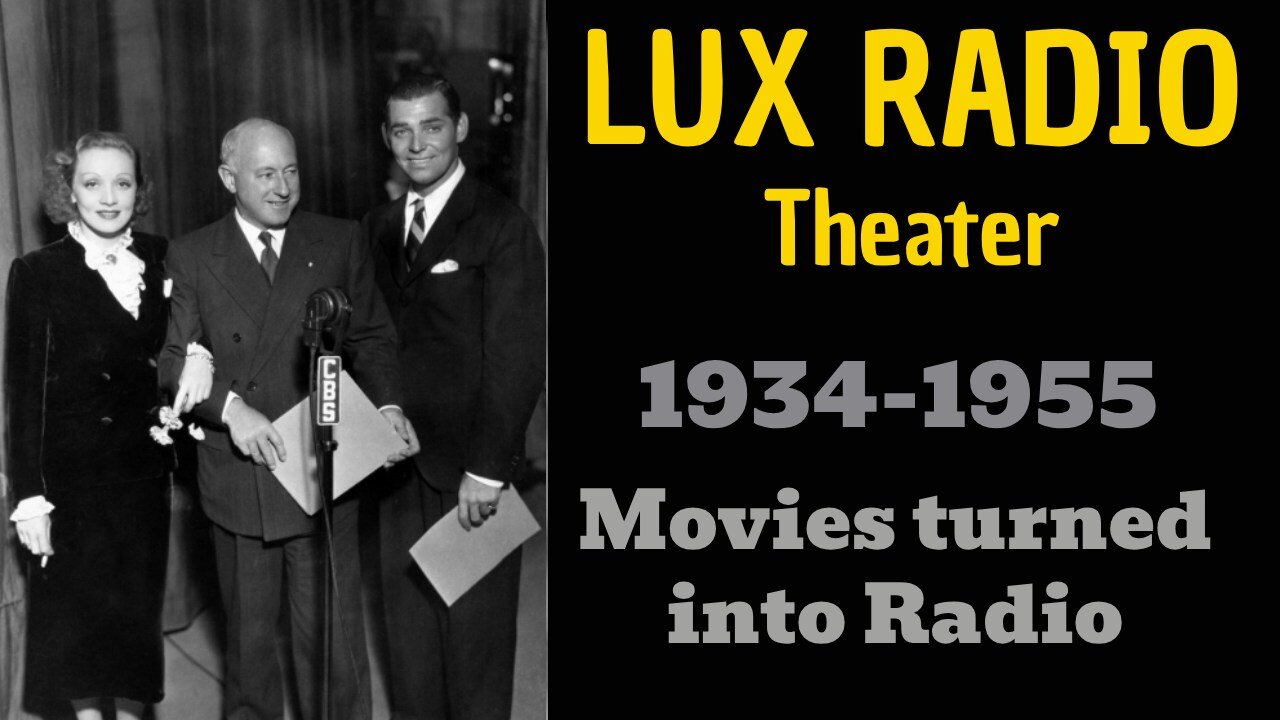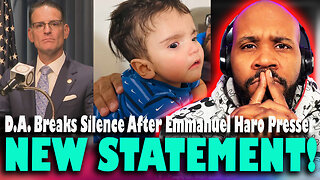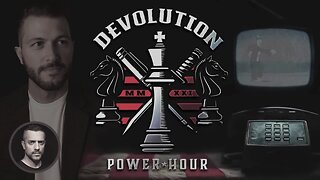Premium Only Content

Lux Radio 38/04/04 (ep170) Dark Victory (Barbara Stanwyck, Melvyn Douglas)
Plot
To avoid an arranged marriage to Don Carlos, an elderly Spanish duke, Princess Marie masquerades as her uncle's former servant, Marietta, and escapes from France on a ship with casquette girls who are traveling to New Orleans to marry colonists. On board, Marietta befriends Julie.
En route, the women discuss what type of man they want to marry. "Marietta" shocks the other girls by stating that she does not intend to marry anyone. Shortly after, the ship is boarded by pirates, who kill the entire crew and take the girls ashore.
After the pirates divide the loot, they turn their attention to the girls. Just then, singing is heard ("Tramp! Tramp! Tramp!"). The pirates extinguish their torches and fire to try to avoid detection, but Marietta takes one of the torches and runs towards the sound of the singing, crying out "help, help". Mercenaries rout the pirates and rescue the women.
Lux Radio Theatre was indisputably the biggest, most important, most expensive drama anthology program on radio. It ran from October 14, 1934 until June 7, 1955, then continued on television as Lux Video Theatre until 1957. In all, some 926 episodes were broadcast, providing a record of the most important entertainment events in American theatre and, later, film.
The show was first broadcast on the NBC Blue Network on Sundays at 2:30 PM. The show featured adaptations of successful Broadway plays when it was produced out of New York, such as Seventh Heaven, the first production starring Miriam Hopkins, Smilin' Through, Berkeley Square, Daddy Long Legs, Peg O' My Heart and Way Down East. On July 29, 1935, the show moved to Monday night at 9:00 PM on CBS, where it would stay until June 29, 1954. The show moved to Hollywood on May 25, 1936 with the production of The Legionnaire and the Lady, based on the film Morocco, starring Marlene Dietrich and Clark Gable.
The audience for this production was estimated as high as 40 million. The show featured many of the most important films of the period, adapted to fit the 60 minute time slot. Some of the titles for 1939 should indicate the caliber and range of shows: Stage Door, Ceiling Zero, So Big, It Happened One Night, The Lives of a Bengal Lancer, Lady for a Day, The Life of Emile Zola, Tovarich, Only Angels Have Wings, The Prisoner of Zenda, The Awful Truth, Wuthering Heights, You Can't Take It With You, The Old Maid and Goodbye, Mr Chips. For its last season, (1954-1955), the show moved to Tuesday nights at 9 on NBC.
Lux Radio Theatre was always broadcast live, with a studio audience and a full orchestra accompanying the performance and providing musical transitions between scenes. As many film actors were used to numerous takes and not live performance, they sometimes suffered acute stage fright before the show. However, since most received $5,000 for their performance -- in addition to free publicity for upcoming pictures -- actors appeared in their original screen roles if they were available. Indeed, production would halt if necessary, on a film if performers were called to appear on Lux. When the actors were not available, others stepped in.
The plays were assembled and rehearsed for a week, in sharp contrast to many other shows, which required a minimal of an actor's time. Regular players for the series included Jim and Marian Jordan, otherwise known as Fibber McGee and Molly. Hosts included Cecil B. DeMille (1936-1945), William Keighley (1945-1952) and Irving Cummings (1952-1955). Directors included Tony Stanford, Frank Woodruff, Fred MacKaye and Earl Ebi.
-
 LIVE
LIVE
Lofi Girl
2 years agoSynthwave Radio 🌌 - beats to chill/game to
281 watching -
 4:30:47
4:30:47
BigN1ck
6 hours agoPhasmo and chill
11.3K -
 10:03
10:03
The Pascal Show
22 hours ago $7.99 earnedNEW STATEMENT! D.A. Breaks Silence Since Emmanuel Haro Presser... Trying To Shut Up Social Media?!
24.3K5 -
 LIVE
LIVE
LethalPnda
2 hours ago🔫 "Bullets, Bad Decisions & Farlight 84" I @Mystivis
111 watching -
 21:22
21:22
GritsGG
18 hours agoPlugged in MnK on Warzone & We Hit Shots!
175K5 -
 1:23:30
1:23:30
TruthStream with Joe and Scott
2 days agoJaime Harlow is back! #483
28.4K21 -
 1:32
1:32
Gaming on Rumble
2 days agoWhat is the Rumble Creator Program?!?! | Lvl UP
69.9K4 -
 10:34:09
10:34:09
Rallied
17 hours ago $21.66 earnedSolo Challenges ALL DAY
273K9 -
 1:39:43
1:39:43
Brandon Gentile
2 days agoTOP Money Expert: Bitcoin Will Keep Setting All-Time Highs Beyond $10m
24.5K3 -
 2:02:28
2:02:28
Badlands Media
1 day agoDevolution Power Hour Ep. 385: Trump “Death” Hoax, Supreme Court Tariffs Fight, and Tech-Military Ops
80.5K46